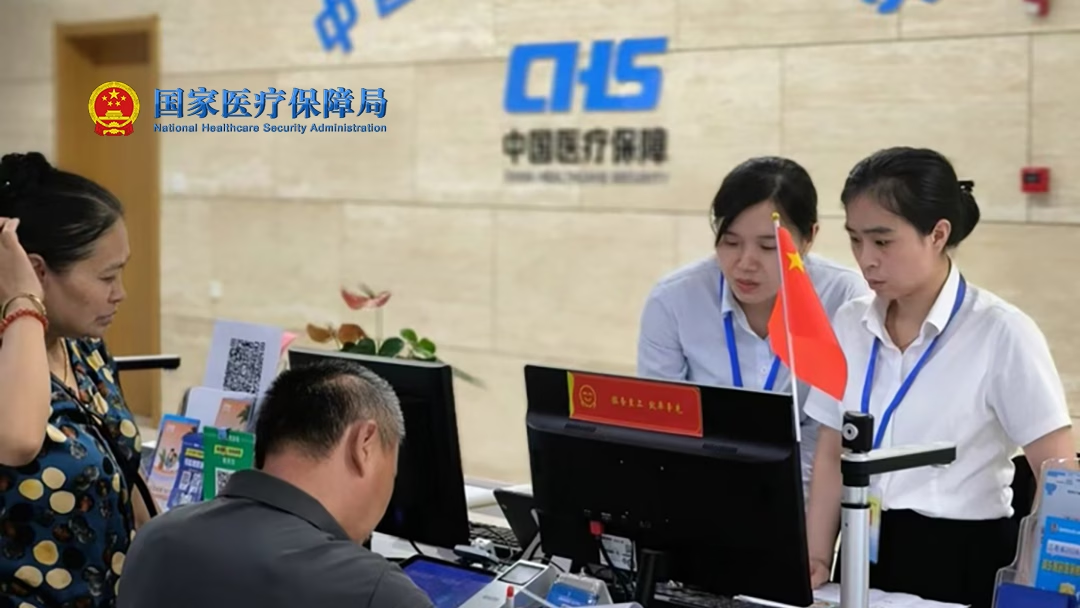The National Healthcare Security Administration (NHSA) has unveiled its 2025 priority action list, focusing on improving efficiency and accessibility in healthcare services. This policy reform targets three key stakeholders: designated medical institutions, pharmaceutical companies, and insured individuals, introducing six major service initiatives. Below is a detailed analysis of the reforms, their implications, and their potential impact on China’s healthcare system.
Policy Breakdown and Key Reforms
1. Instant Settlement for Designated Medical Institutions
- Objective: By the end of 2025, over 80% of medical insurance coordination areas nationwide will achieve instant settlement with designated medical institutions.
- Significance: This reform aims to alleviate financial pressures on healthcare providers by reducing long settlement cycles and enhancing cash flow. Instant settlements will improve service efficiency and reduce administrative burdens for both healthcare facilities and patients.
2. Cross-Provincial Direct Settlement for Outpatient Chronic Diseases
- Details: Ten specific chronic diseases, including hypertension, chronic obstructive pulmonary disease (COPD), and coronary heart disease, will be eligible for cross-provincial direct settlement.
- Impact: This initiative enhances accessibility to healthcare services for patients with chronic conditions who frequently travel or reside in different provinces. It reduces the financial burden on individuals by eliminating out-of-pocket expenses during treatment.
3. Cross-Provincial Sharing of Employee Medical Insurance Accounts
- Target: By 2025, over 90% of coordination areas will enable cross-provincial sharing of employee medical insurance accounts via a “Medicare Wallet” platform.
- Purpose: This reform allows employees to share their medical insurance balances with family members (spouses, children, and parents) for medical expenses in designated healthcare facilities or pharmacies. It promotes resource optimization and improves healthcare accessibility.
4. Direct Settlement for Bulk-Purchased Pharmaceuticals and Medical Devices
- Initiatives: The NHSA will establish direct settlement mechanisms with pharmaceutical companies for bulk-purchased drugs. This includes accelerating the implementation of direct settlements for medical devices and negotiated medications.
- Benefits: Streamlining payment processes between healthcare authorities and pharmaceutical companies reduces administrative inefficiencies, lowers costs, and ensures timely access to essential medicines.
5. National Unified Platform for Pharmaceutical Listings
- Implementation: A unified national platform will allow pharmaceutical companies to submit listing applications across multiple provinces simultaneously, with a single set of documentation.
- Efficiency: This reform eliminates redundant processes, reduces regulatory burdens on pharmaceutical firms, and ensures consistent pricing and availability of medications nationwide.
6. One-Time Withdrawal of Pensioners’ Medical Insurance Balances
- Details: Upon the death of an employee medical insurance participant, their account balance can be withdrawn in one lump sum.
- Significance: This measure simplifies inheritance procedures for families and ensures timely access to financial benefits after the loss of a family member.
Policy Implications and Strategic Direction
The NHSA’s 2025 priority list reflects a strategic shift toward digitization, efficiency, and equitable healthcare access. Key trends include:
- Enhanced Payment Efficiency: Instant settlements and direct payment mechanisms reduce administrative delays, lowering costs for healthcare providers and improving patient experiences.
- Improved Cross-Provincial Accessibility: Reforms like cross-provincial disease settlement and insurance account sharing align with China’s growing mobile workforce and aging population.
- Streamlined Regulatory Processes: Unified platforms for pharmaceutical listings and bulk purchasing reduce bureaucratic hurdles, fostering a more competitive and efficient market.
Outlook and Recommendations
The NHSA’s reforms are poised to significantly enhance healthcare service delivery in China. However, successful implementation will depend on:
- Technical Infrastructure Development: Robust IT systems are critical for supporting instant settlements, cross-provincial sharing, and unified platforms.
- Public Awareness Campaigns: Ensuring that insured individuals and medical providers understand these reforms is essential to maximizing their impact.
- Inter-Provincial Coordination: Harmonizing policies across provinces will be crucial to avoid inconsistencies and ensure seamless service delivery.
Conclusion
The NHSA’s 2025 priority list represents a bold step toward modernizing China’s healthcare system. By focusing on efficiency, accessibility, and digital innovation, these reforms aim to create a more equitable and responsive healthcare framework for all citizens.-Fineline Info & Tech
